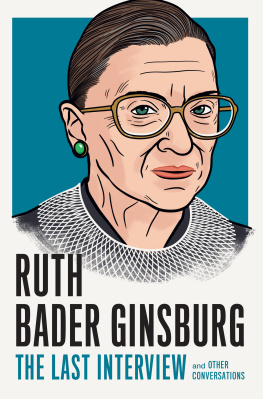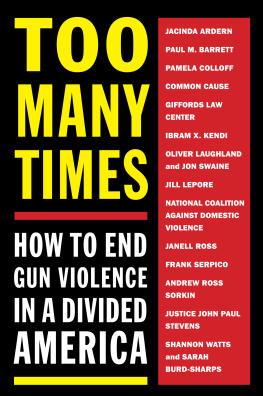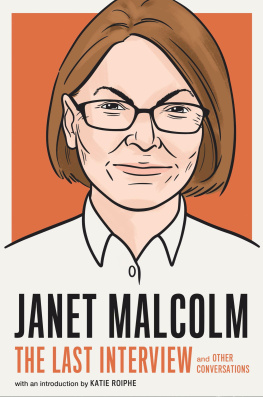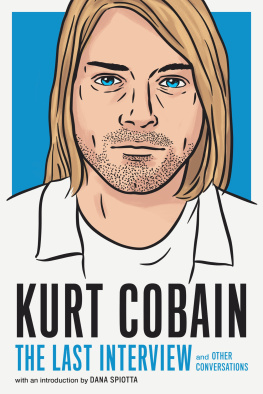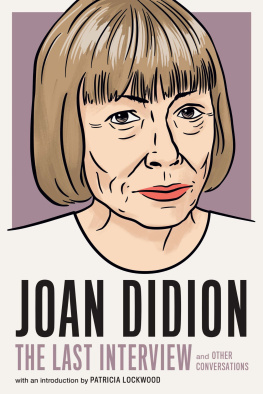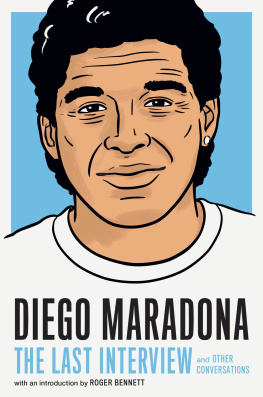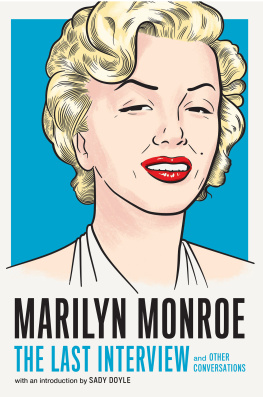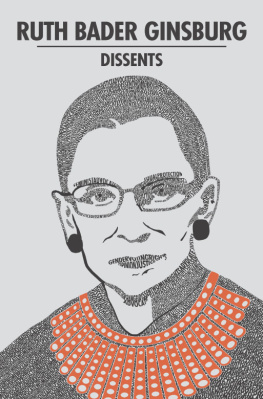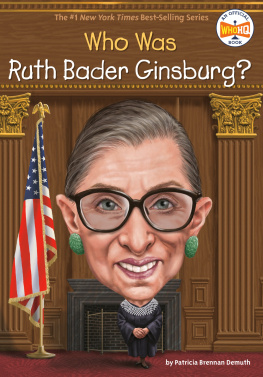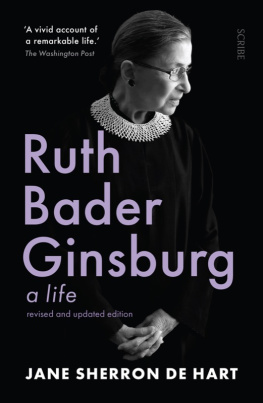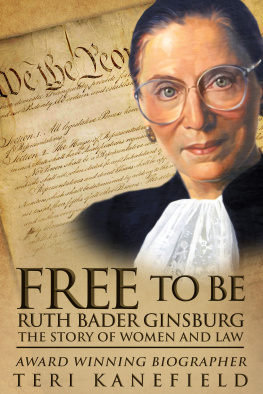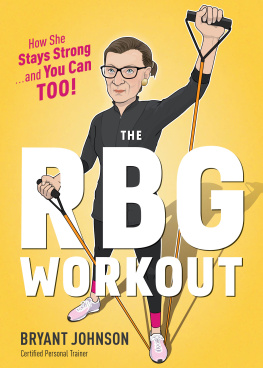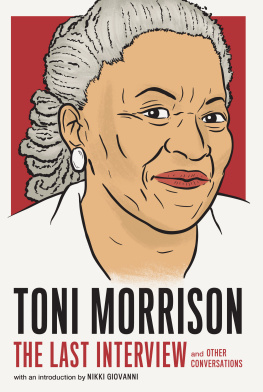Melville House - Ruth Bader Ginsburg: The Last Interview and Other Conversations
Here you can read online Melville House - Ruth Bader Ginsburg: The Last Interview and Other Conversations full text of the book (entire story) in english for free. Download pdf and epub, get meaning, cover and reviews about this ebook. year: 2020, publisher: Melville House, genre: Politics. Description of the work, (preface) as well as reviews are available. Best literature library LitArk.com created for fans of good reading and offers a wide selection of genres:
Romance novel
Science fiction
Adventure
Detective
Science
History
Home and family
Prose
Art
Politics
Computer
Non-fiction
Religion
Business
Children
Humor
Choose a favorite category and find really read worthwhile books. Enjoy immersion in the world of imagination, feel the emotions of the characters or learn something new for yourself, make an fascinating discovery.
- Book:Ruth Bader Ginsburg: The Last Interview and Other Conversations
- Author:
- Publisher:Melville House
- Genre:
- Year:2020
- Rating:5 / 5
- Favourites:Add to favourites
- Your mark:
- 100
- 1
- 2
- 3
- 4
- 5
Ruth Bader Ginsburg: The Last Interview and Other Conversations: summary, description and annotation
We offer to read an annotation, description, summary or preface (depends on what the author of the book "Ruth Bader Ginsburg: The Last Interview and Other Conversations" wrote himself). If you haven't found the necessary information about the book — write in the comments, we will try to find it.
Melville House: author's other books
Who wrote Ruth Bader Ginsburg: The Last Interview and Other Conversations? Find out the surname, the name of the author of the book and a list of all author's works by series.
Ruth Bader Ginsburg: The Last Interview and Other Conversations — read online for free the complete book (whole text) full work
Below is the text of the book, divided by pages. System saving the place of the last page read, allows you to conveniently read the book "Ruth Bader Ginsburg: The Last Interview and Other Conversations" online for free, without having to search again every time where you left off. Put a bookmark, and you can go to the page where you finished reading at any time.
Font size:
Interval:
Bookmark:
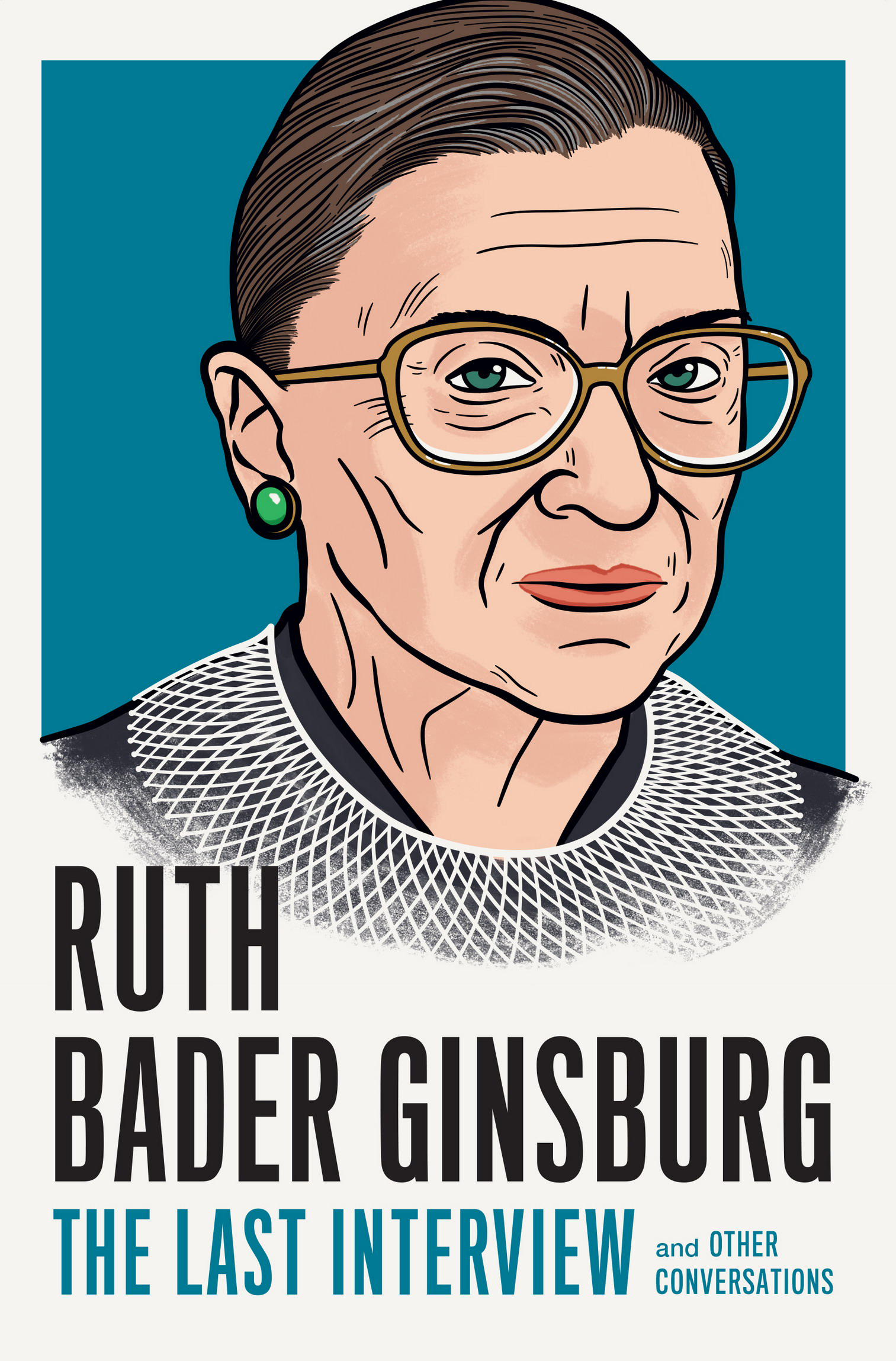
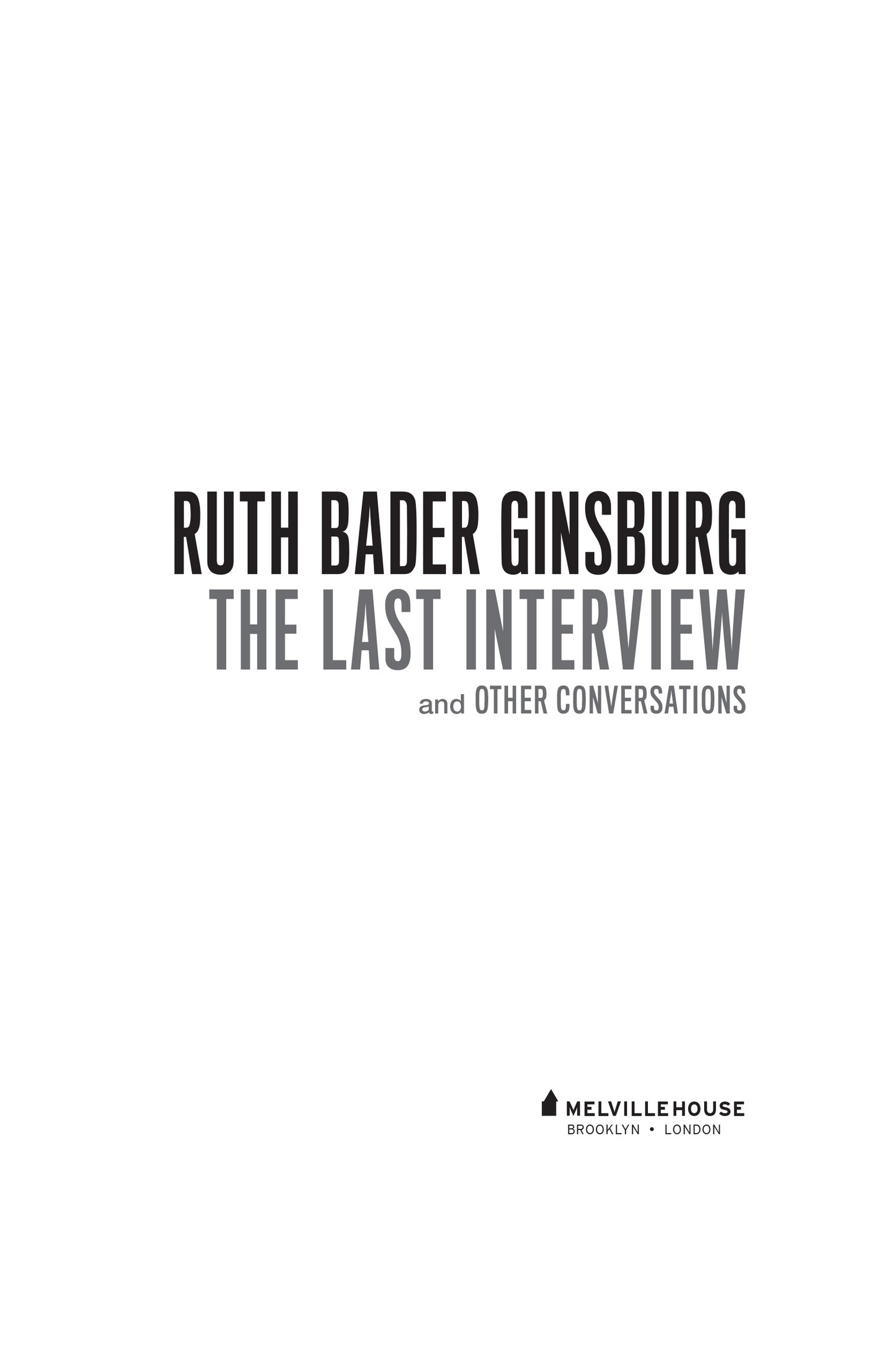
RUTH BADER GINSBURG: THE LAST INTERVIEW AND OTHER CONVERSATIONS
Copyright 2020 by Melville House Publishing
Columbia Law Snares A Prize in the Quest for Women Professors 1972 by The New York Times Company.
All rights reserved. Used under license.
Interview with U.S. Court of Appeals from the District of Columbia Circuit Judge Ruth Bader Ginsburg 1986 by the National Cable Satellite Corporation. Transcript made by Melville House Publishing from C-Span television program, originally aired March 28, 1986.
Jane Eisner Interviews Ruth Bader Ginsburg 2018 by the Forward. First published in the Forward. Reprinted with permission.
Justice Ruth Bader Ginsburg in Conversation with Bill Moyers 2020 by Moyers Media. First published in Moyers on Democracy. Reprinted with permission.
First Melville House printing: October 2020
Melville House Publishing
46 John Street
Brooklyn, NY 11201
and
Suite 2000
16/18 Woodford Road
London E7 0HA
mhpbooks.com
@melvillehouse
ISBN9781612199191
Ebook ISBN9781612199207
A catalog record for this book is available from the Library of Congress.
a_prh_5.6.0_c0_r0
Interview by Lesley Oelsner
The New York Times
January 26, 1972
Interview by Connie Doebele
C-SPAN Judicial Affairs
March 28, 1986
Q&A with students from Midwood High School in Brooklyn, New York, and from Manchester High School in Midlothian, Virginia
U.S. Supreme Court, East Conference Room, Washington, D.C.
January 30, 2002
Interview by Marvin Kalb
The Kalb Report
The National Press Club, Washington, D.C.
April 17, 2014
Interview by Nina Totenberg
Sundance Film Festival, Park City, Utah
January 21, 2018
Interview by Jane Eisner
The Forward
Adas Israel Synagogue, Washington, D.C.
February 1, 2018
Interview by Bill Moyers
Moyers On Democracy
Union Theological Seminary, New York City
February 12, 2020
Perhaps the reason Ruth Bader Ginsburg flourished in the face of adversity was the circumstances into which she was born, on the Ides of March in 1933the child of an immigrant in the middle of the Great Depression. Raised in the Flatbush section of Brooklyn, her Russian-born father was a furrier at a time when people stopped buying furs, and her mother, the child of Polish immigrants, worked in a garment factory. When young Joan Ruth Badershe would become Ruth in grade school due to a preponderance of Joanswas only fourteen months old, her six-year-old sister Marilyn died of meningitis. Her mother died the day before Ruth graduated from her public high school.
Seeking to fulfill her mothers wish that she become a teacher, Ginsburg went on to Cornell University. No one ever expected me to go to law school, she later explained to The New York Times in one of her first public interviews, contained herein. I was supposed to be a high school teacher, or how else could I earn a living? While at Cornell, she would study with Vladimir Nabokov, who, she would tell Bill Moyers in another of this books interviewsthe last interview of her life, in factwould have a profound influence on the writing style that would later draw acclaim in her court decisions.
Ginsburg graduated the highest-ranking woman in her class, and soon after married her classmate Martin Ginsburg, who had graduated a year earlier and gone on to law school. After giving birth to her daughter JaneGinsburgs pregnancy had led to her demotion in a job shed taken with the Social Security Administrationshe enrolled at Harvard Law School, one of only nine women in a class of over five hundred men. When Martin got a job at a law firm in New York, she transferred to Columbia Law School, where she would graduate tied for first in her class.
Her brilliant performance in school didnt help her get a job very quickly, however. No law firm would hire her, and when she sought a clerkship with Supreme Court Justice Felix Frankfurter, he turned her down because she was a woman. Eventually, she got a teaching position at Rutgers Law School, but she had to accept a lower salary than the male professors.
In 1972, Ginsburg moved on to teach at Columbia Law School, where she became the first woman to achieve tenure, and she also founded the Womens Rights Project at the American Civil Liberties Union. As director, she argued six landmark gender discrimination cases before the Supreme Court, winning fiveeffectively eradicating gender discrimination from most areas of American law. Her reputation quickly soared and in 1980 President Jimmy Carter appointed her to the U.S. Court of Appeals for the District of Columbiaa precedent-setting move, as she observed in a conversation with high school students contained herein, that became a pattern, whereby subsequent presidents began more regularly appointing women to the bench.
By the time of her elevation to the Supreme Court in 1993, Ginsburg had become known not only for her legal brilliance, but also for her ability to build consensus with more conservative judges, such as her Appeals Court colleague Antonin Scalia (who by that time had also been appointed to the Supreme Court). Appointed by President Bill Clinton, she was only the second woman ever to serve, and the first Jewish woman.
She would go on to write many of the courts more historic decisions, such as that of United States v. Virginia, which struck down the male-only admission policy of the Virginia Military Institute. She would also become known for some withering dissents, such as in Shelby County v. Holder, whichas she details herein in an interview with journalist Jane Eisnercut the heart out of the Voting Rights Act of 1965.
In her later years, especially as the Court became more conservative and she was, for several years, its only woman, Ginsburgs fame took on a new level in popular culture. In 2013 a law students Tumblr account about her dubbed her The Notorious R.B.G., after fellow Brooklynite, rapper The Notorious B.I.G. The name stuck, and books and documentaries about her appeared more and more regularly. People delighted in stories about how she chose which white lace jabot to wear over her judicial robes (it depended on whether she was issuing a dissent or a majority opinion); about her workout regime; about her close friendship with her polar opposite on the Court, Antonin Scalia; and her passion for opera. There was even an opera written about her friendship with Scalia. (Scalia himself comments on their friendship herein, saying about her Whats not to like? Except her views on the law.)
Opera, in fact, was the career she would have chosen if she could do it all over again, she told her friend, National Public Radio legal reporter Nina Totenberg. In my dreams, a recurring dream is Im onstage at the Metropolitan Opera, and Im about to sing Tosca, and then I remember that I am a monotone!
The outpouring of grief upon her death from pancreatic cancer in September 2020 bespoke a nation filled with a deep gratitude that she was a monotone, and even in death she broke one final glass ceiling: Ruth Bader Ginsburg was the first woman to lie in state in the Capitol of the United States.
Font size:
Interval:
Bookmark:
Similar books «Ruth Bader Ginsburg: The Last Interview and Other Conversations»
Look at similar books to Ruth Bader Ginsburg: The Last Interview and Other Conversations. We have selected literature similar in name and meaning in the hope of providing readers with more options to find new, interesting, not yet read works.
Discussion, reviews of the book Ruth Bader Ginsburg: The Last Interview and Other Conversations and just readers' own opinions. Leave your comments, write what you think about the work, its meaning or the main characters. Specify what exactly you liked and what you didn't like, and why you think so.

